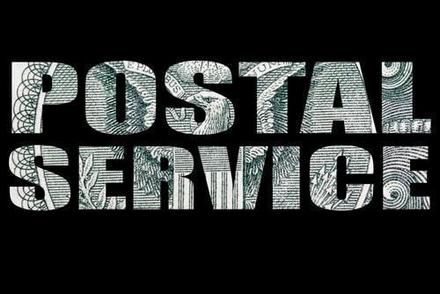TELEPHONES ANSWERED 24 HOURS A DAY
Recent Blog Posts
Defending Against Federal Charges for Carjacking
 Different states have varying laws on carjacking. Many people do not understand, however, that this offense can also be charged as a federal crime. When carjacking is prosecuted at the federal level, the prison sentences for those convicted are typically much longer, and the fines are also much higher as compared to those for a conviction at the state level. Fortunately, there are possible defenses to such charges. To understand what they are, you first must understand when carjacking becomes a federal crime and what the prosecution must prove to secure a conviction.
Different states have varying laws on carjacking. Many people do not understand, however, that this offense can also be charged as a federal crime. When carjacking is prosecuted at the federal level, the prison sentences for those convicted are typically much longer, and the fines are also much higher as compared to those for a conviction at the state level. Fortunately, there are possible defenses to such charges. To understand what they are, you first must understand when carjacking becomes a federal crime and what the prosecution must prove to secure a conviction.
When Is Carjacking Considered a Federal Crime?
Under 18 USC 2119, carjacking is a federal crime when a person takes a motor vehicle that has been transported, shipped, or received in interstate or foreign commerce. Essentially, the vehicle must cross state or country lines for the crime to be considered a federal offense.
The law states that for federal carjacking to have occurred, a vehicle must be taken from someone else by use of force, violence, or intimidation. The statute also includes attempting to use force or intimidation, even if these attempts are unsuccessful. Additionally, under the federal statute, that force or intimidation must be done with the intention of causing death or serious bodily harm.
New Measure to Make Voting System Hacking a Federal Offense
 In most cases, a computer-related crime that is committed anywhere in the U.S. can usually be prosecuted as a federal offense. Of course, each state maintains its own laws regarding computer-based offenses, but such crimes typically involve the internet, which places them under the jurisdiction of federal authorities and the United States federal justice system. For example, those accused of using computers to facilitate drug or weapons trafficking or the exchange of child pornography will usually find themselves facing charges in federal court. The same is true for “hackers” who gain unauthorized access to computer networks or systems via the internet. But what about voting system hacking?
In most cases, a computer-related crime that is committed anywhere in the U.S. can usually be prosecuted as a federal offense. Of course, each state maintains its own laws regarding computer-based offenses, but such crimes typically involve the internet, which places them under the jurisdiction of federal authorities and the United States federal justice system. For example, those accused of using computers to facilitate drug or weapons trafficking or the exchange of child pornography will usually find themselves facing charges in federal court. The same is true for “hackers” who gain unauthorized access to computer networks or systems via the internet. But what about voting system hacking?
This knowledge—combined with the rampant allegations and rumors of voting-related fraud during the current election campaign—you may be surprised to discover that federal authorities do not currently have a concise process available to prosecute any suspect who is alleged to have hacked a voting system. Late last month, the U.S. House of Representatives took a clear step forward in addressing this problem by unanimously passing a measure that will give the U.S. Justice Department a statutory basis from which to prosecute voter system hacking in federal court.
What You Need to Know About the Crime of Mail Fraud
 The crime of mail fraud was first addressed by the federal government in the mid-1800s after evidence surfaced that people were using the U.S. mail system to conduct various scams. The interstate nature of the mail (and eventually wire service) effectively required the matter to be one of federal interest. As a result, in 1872, it became a federal crime for a person to use mail services—and now the internet—to willingly and knowingly deprive another person of their money, property, and/or services.
The crime of mail fraud was first addressed by the federal government in the mid-1800s after evidence surfaced that people were using the U.S. mail system to conduct various scams. The interstate nature of the mail (and eventually wire service) effectively required the matter to be one of federal interest. As a result, in 1872, it became a federal crime for a person to use mail services—and now the internet—to willingly and knowingly deprive another person of their money, property, and/or services.
It is important to keep in mind that in order for an act or scheme to constitute mail or wire fraud, it must intend to defraud another party by means of wire communication or the mail. This means that an advertisement for a legitimate product or service—even one that is deceptive or misleading—is not generally considered fraudulent. The intent of the accused is the key to the case. The suspect must have intended to obtain something for nothing in order for the act to constitute fraud.
What Are My Rights as a Criminal Defendant?
 Being accused of any type of crime can be completely overwhelming and confusing, whether it is a federal drug crime or an allegation related to child pornography. A criminal defendant may not know that he or she still has certain rights after being arrested and charged with a crime. These rights are protected by the United States Constitution and other state and federal laws. If you are facing criminal charges, it is important to remember that you are innocent until proven guilty, and you deserve to be treated with dignity and respect. It is important to know about the rights every criminal defendant has and what to do if your rights have been violated.
Being accused of any type of crime can be completely overwhelming and confusing, whether it is a federal drug crime or an allegation related to child pornography. A criminal defendant may not know that he or she still has certain rights after being arrested and charged with a crime. These rights are protected by the United States Constitution and other state and federal laws. If you are facing criminal charges, it is important to remember that you are innocent until proven guilty, and you deserve to be treated with dignity and respect. It is important to know about the rights every criminal defendant has and what to do if your rights have been violated.
The Right to Remain Silent
Even if you have never before been arrested, you are probably familiar with the “right to remain silent.” This right is listed along with many others during the Miranda Warning—which should have been read to you during or after your arrest. You have a right to stay silent when questioned by police so that you can avoid incriminating yourself. Many criminal defendants inadvertently give police and prosecutors evidence which is later used against them by talking too much in the moments after the arrest, so it is critical that you do not consent to police questioning until you have an attorney present. An experienced criminal defense attorney will help you avoid the tactics that police often use in an attempt to get you to admit to a crime.
What You Need to Know About Federal Conspiracy Charges
 Did you know that you could be charged with a federal crime even if authorities are aware that you did not actually commit what most people would consider an illegal act? At some point or another, most of us have talked or joked about the idea of committing some type of crime—such as robbing a bank when family finances get tight. Doing so may seem harmless, especially when such conversations are light-hearted, but in reality, having serious discussions or making plans related to the commission of a crime could lead to the filing of federal conspiracy charges. It is possible to be charged with conspiracy even if the discussed act or acts were never actually carried out.
Did you know that you could be charged with a federal crime even if authorities are aware that you did not actually commit what most people would consider an illegal act? At some point or another, most of us have talked or joked about the idea of committing some type of crime—such as robbing a bank when family finances get tight. Doing so may seem harmless, especially when such conversations are light-hearted, but in reality, having serious discussions or making plans related to the commission of a crime could lead to the filing of federal conspiracy charges. It is possible to be charged with conspiracy even if the discussed act or acts were never actually carried out.
Understanding Federal Conspiracy Charges
Criminal conspiracy is one of the most common charges filed at the federal level. In general, prosecutors are often likely to file this because it allows for a broad set of evidence to be presented. Federal conspiracy charges are also commonly used as leverage by federal prosecutors and law enforcement agencies as they investigate larger-scale criminal operations. For example, a federal agent could threaten to charge a person with criminal conspiracy unless the person is willing to cooperate and share additional details about other individuals who may have carried out the primary offense in question.
More Than 60 in Chicago Charged with Federal Crimes Under Operation Legend
 Over the last few weeks, more than 1,000 arrests have been made in major cities around the country, and over 215 individuals have been charged with at least one federal crime. These numbers come from an announcement made by U.S. Attorney General William Barr last week. The arrests were made as part of “Operation Legend,” a focused, nationwide effort to combat violent crime in America’s large cities.
Over the last few weeks, more than 1,000 arrests have been made in major cities around the country, and over 215 individuals have been charged with at least one federal crime. These numbers come from an announcement made by U.S. Attorney General William Barr last week. The arrests were made as part of “Operation Legend,” a focused, nationwide effort to combat violent crime in America’s large cities.
In Chicago alone, more than 60 people have been charged with federal crimes since the initiative began in the city on July 22. Attorney Barr said the charges are related to bank fraud, narcotics, and weapons violations.
Operation Legend Honors Young Victim
According to the Justice Department, Operation Legend was started as a “sustained, systemic, and coordinated law enforcement initiative in which federal law enforcement agencies work in conjunction with state and local law enforcement officials to fight violent crime.” The name of the operation was selected to honor LeGend Taliferro, a 4-year-old boy who was shot to death as slept in the early hours of June 29 in Kansas City, Missouri. (Second-degree murder charges were filed against the boy’s alleged killer two weeks ago.)
Steps to Take if You are Being Investigated for PPP Fraud
 Earlier this year, the federal government rolled out the CARES Act, which included the Payroll Protection Program (PPP). The PPP was intended to help small business owners keep their employees on the payroll during the pandemic, and help them pay for other costs, such as utilities and rent. Now, it is being learned that many large businesses, such as Shake Shack, are improperly applying for and being granted these loans. Even smaller businesses may face federal charges if it is found out that they have not been using the funds appropriately. So, what should you do if you become the subject of a PPP investigation?
Earlier this year, the federal government rolled out the CARES Act, which included the Payroll Protection Program (PPP). The PPP was intended to help small business owners keep their employees on the payroll during the pandemic, and help them pay for other costs, such as utilities and rent. Now, it is being learned that many large businesses, such as Shake Shack, are improperly applying for and being granted these loans. Even smaller businesses may face federal charges if it is found out that they have not been using the funds appropriately. So, what should you do if you become the subject of a PPP investigation?
What Prompts a PPP Fraud Investigation?
Since the PPP was introduced, federal agencies have stated that auditing the loans, particularly those over the amount of $2 million, will be a priority for them. An audit will likely be conducted if the government suspects that the borrower lied about owning a business so they could fraudulently obtain a loan, or the borrower was deceptive about the number of employees they have in order to secure a larger amount.
What Type of Criminal Charges Are Involved in Ponzi Schemes?
 Ponzi schemes have become famous after news was made of Dona Branca’s scheme, the “Double Shah” and of course, the original Charles Ponzi scheme. Still, even though Ponzi schemes often make the news, few people really understand what they are, and what is at stake if they are charged with running such a scheme. Learn more about Ponzi schemes below, what types of criminal charges are involved, and what to do if you are charged.
What Is a Ponzi Scheme?
Ponzi schemes are considered white-collar crimes that typically involve some type of fraud. They are not violent crimes, but they are not what some call ‘victimless’ either, because these schemes do defraud people out of their money.
A Ponzi scheme will involve an investor that convinces people or groups of people to invest a large amount of money with them in the hopes of obtaining a large return on that investment. The money paid by these individuals is then distributed to others that have also been convinced to invest. The majority of the money collected from investors is kept by the person or group running the scheme.
Usually, the scheme is discovered when an investor wants to cash out, but they do not receive any payments because no new investors have been brought into the scheme.
Ponzi Schemes and Criminal Charges
Due to the fact that Ponzi schemes typically include some type of fraud, a person may face several charges if they are suspected of running such a scheme. The most common of these include:
Ponzi schemes have become famous after news was made of Dona Branca’s scheme, the “Double Shah” and of course, the original Charles Ponzi scheme. Still, even though Ponzi schemes often make the news, few people really understand what they are, and what is at stake if they are charged with running such a scheme. Learn more about Ponzi schemes below, what types of criminal charges are involved, and what to do if you are charged.
What Is a Ponzi Scheme?
Ponzi schemes are considered white-collar crimes that typically involve some type of fraud. They are not violent crimes, but they are not what some call ‘victimless’ either, because these schemes do defraud people out of their money.
A Ponzi scheme will involve an investor that convinces people or groups of people to invest a large amount of money with them in the hopes of obtaining a large return on that investment. The money paid by these individuals is then distributed to others that have also been convinced to invest. The majority of the money collected from investors is kept by the person or group running the scheme.
Usually, the scheme is discovered when an investor wants to cash out, but they do not receive any payments because no new investors have been brought into the scheme.
Ponzi Schemes and Criminal Charges
Due to the fact that Ponzi schemes typically include some type of fraud, a person may face several charges if they are suspected of running such a scheme. The most common of these include:
- Mail fraud, if the government suspects a person used the postal office in an effort to further the scheme
What to Do if Your Spouse is Charged with a Federal Crime
 Learning that your loved one has been charged with a federal crime is very scary. You want to help, but you do not know how to do it, or what steps to take. You may also want to post bond as soon as possible, so your spouse can come back home to you. The federal justice system though, is very different from the state justice system most people think of in criminal cases and so, it is important to understand those differences, and what you should do after your spouse is arrested.
State Court vs. Federal Court
Many people are familiar with the state court system and how it works, but are unaware that federal court is very different. Federal convictions typically carry much harsher consequences, and the procedural rules also vastly differ. As such, you need to work with a criminal defense lawyer that has the necessary experience in federal court to give your spouse the best chance possible.
Posting Bond
One of the biggest differences between state and federal courts is that you will likely be unable to post bond right away for your spouse. State courts often allow people to post bail or bond and remain at home until the date of their court hearing. Federal courts do not typically follow this procedure.
The Federal Rules of Criminal Procedure state that defendants must appear in their first detention hearing within three days of arrest. At the hearing, they will be read the charges they are facing, and the court will determine if the individual is a flight risk, or if they pose a threat to others. After determining this, the judge will determine whether bond is appropriate.
Certain federal offenses do not allow defendants or their loved ones to post bond. These include certain violent crimes, drug offenses that carry a prison sentence of ten years or more, felonies committed against a minor, and felonies committed with a firearm.
Steps to Take to Help Your Spouse’s Case
If your loved one cannot post bond, it will be even more important that you understand the steps you should take. The first step is to keep copies of all documentation. You may receive copies of warrants, police reports, and other paperwork during and after your spouse’s arrest. It is crucial that you keep all of these, as they will contain information about where your spouse is detained.
Secondly, you must speak with a federal criminal defense lawyer that can help with your spouse’s case. Remember that the lawyer will work for your spouse, not you. Although it is okay to ask questions, remain understanding if there are certain aspects of the case the lawyer cannot discuss with you.
Our Chicago Federal Criminal Defense Lawyer Is Here to Help
Learning that your loved one has been charged with a federal crime is very scary. You want to help, but you do not know how to do it, or what steps to take. You may also want to post bond as soon as possible, so your spouse can come back home to you. The federal justice system though, is very different from the state justice system most people think of in criminal cases and so, it is important to understand those differences, and what you should do after your spouse is arrested.
State Court vs. Federal Court
Many people are familiar with the state court system and how it works, but are unaware that federal court is very different. Federal convictions typically carry much harsher consequences, and the procedural rules also vastly differ. As such, you need to work with a criminal defense lawyer that has the necessary experience in federal court to give your spouse the best chance possible.
Posting Bond
One of the biggest differences between state and federal courts is that you will likely be unable to post bond right away for your spouse. State courts often allow people to post bail or bond and remain at home until the date of their court hearing. Federal courts do not typically follow this procedure.
The Federal Rules of Criminal Procedure state that defendants must appear in their first detention hearing within three days of arrest. At the hearing, they will be read the charges they are facing, and the court will determine if the individual is a flight risk, or if they pose a threat to others. After determining this, the judge will determine whether bond is appropriate.
Certain federal offenses do not allow defendants or their loved ones to post bond. These include certain violent crimes, drug offenses that carry a prison sentence of ten years or more, felonies committed against a minor, and felonies committed with a firearm.
Steps to Take to Help Your Spouse’s Case
If your loved one cannot post bond, it will be even more important that you understand the steps you should take. The first step is to keep copies of all documentation. You may receive copies of warrants, police reports, and other paperwork during and after your spouse’s arrest. It is crucial that you keep all of these, as they will contain information about where your spouse is detained.
Secondly, you must speak with a federal criminal defense lawyer that can help with your spouse’s case. Remember that the lawyer will work for your spouse, not you. Although it is okay to ask questions, remain understanding if there are certain aspects of the case the lawyer cannot discuss with you.
Our Chicago Federal Criminal Defense Lawyer Is Here to Help
If your spouse has been arrested and is facing federal charges, there is little doubt that you want to help them as much as possible. At the Law Offices of Hal M. Garfinkel, our experienced Chicago federal criminal defense lawyer knows what a difficult time this is for you, and wants to make it easier on your family. Call us today at 312-629-0669 or contact us online to learn more about how we can help your spouse with their charges.
FAQs About Changing Attorneys in the Middle of Your Case
 Too often, people are charged with a federal offense, such as tax evasion or drug trafficking, and they quickly hire a lawyer that was recommended to them, or that they heard about from an advertisement. As the case progresses, the lawyer’s shortcomings become quite evident and the accused individual starts to lose trust in their attorney. In these instances, people often want to change their lawyers, but wonder if they are allowed to under the law. This is just one question that arises when people want to change lawyers. Below are other frequently asked questions about hiring a new attorney, and the answers to them.
Am I Allowed to Switch Lawyers During My Case?
The Constitution of the United States provides all Americans the right to have an attorney of their choosing represent them during their case. As such, you can change lawyers nearly any time you would like. However, there are times when a judge will not allow you to change lawyers, such as right before your trial begins if the judge feels it would not serve justice and the change would only delay the case.
How Do I Know if I Should Change Lawyers?
The answer to this question is largely subjective because it relies on how you feel about your attorney. Do you feel as though your lawyer does not have the skillset your case requires? Do you speak more to your lawyer’s paralegals and secretaries than you do your attorney? Have you lost trust that your lawyer is working in your best interests? All of these are signs that you should change lawyers but generally speaking, any time you are not comfortable with your lawyer, it might be time to seek a second opinion.
How Do I Know that a Lawyer is Better than My Current One?
The most important thing to ask a potential new lawyer about is their experience. Ask how many cases they have handled that are similar to yours, and about the outcomes, they achieved in those cases. This will tell you if the lawyer can handle your case, and will ensure they are familiar with the law regarding your case.
Do I Have to Tell My Old Lawyer that I Chose a New One?
You should never sever ties with your current attorney until you have spoken to a new one. Once you start working with your new lawyer, they can draft a letter informing your current lawyer of the change and ask that they transfer your case file to you, or to your new attorney.
Need a Second Opinion? Our Chicago Federal Criminal Defense Lawyer Can Help
Too often, people are charged with a federal offense, such as tax evasion or drug trafficking, and they quickly hire a lawyer that was recommended to them, or that they heard about from an advertisement. As the case progresses, the lawyer’s shortcomings become quite evident and the accused individual starts to lose trust in their attorney. In these instances, people often want to change their lawyers, but wonder if they are allowed to under the law. This is just one question that arises when people want to change lawyers. Below are other frequently asked questions about hiring a new attorney, and the answers to them.
Am I Allowed to Switch Lawyers During My Case?
The Constitution of the United States provides all Americans the right to have an attorney of their choosing represent them during their case. As such, you can change lawyers nearly any time you would like. However, there are times when a judge will not allow you to change lawyers, such as right before your trial begins if the judge feels it would not serve justice and the change would only delay the case.
How Do I Know if I Should Change Lawyers?
The answer to this question is largely subjective because it relies on how you feel about your attorney. Do you feel as though your lawyer does not have the skillset your case requires? Do you speak more to your lawyer’s paralegals and secretaries than you do your attorney? Have you lost trust that your lawyer is working in your best interests? All of these are signs that you should change lawyers but generally speaking, any time you are not comfortable with your lawyer, it might be time to seek a second opinion.
How Do I Know that a Lawyer is Better than My Current One?
The most important thing to ask a potential new lawyer about is their experience. Ask how many cases they have handled that are similar to yours, and about the outcomes, they achieved in those cases. This will tell you if the lawyer can handle your case, and will ensure they are familiar with the law regarding your case.
Do I Have to Tell My Old Lawyer that I Chose a New One?
You should never sever ties with your current attorney until you have spoken to a new one. Once you start working with your new lawyer, they can draft a letter informing your current lawyer of the change and ask that they transfer your case file to you, or to your new attorney.
Need a Second Opinion? Our Chicago Federal Criminal Defense Lawyer Can Help
Changing lawyers in the middle of your case is certainly not ideal, but sometimes it is necessary. If you feel as though your current lawyer is not the right one for the job, our skilled Chicago federal criminal defense lawyer at the Law Offices of Hal M. Garfinkel can help. Attorney Garfinkel is well-versed in all areas of federal law and can answer all your questions about switching lawyers. When you need a second opinion, call us at 312-629-0669 or contact us online to schedule a free consultation and to learn more about how we can help.




